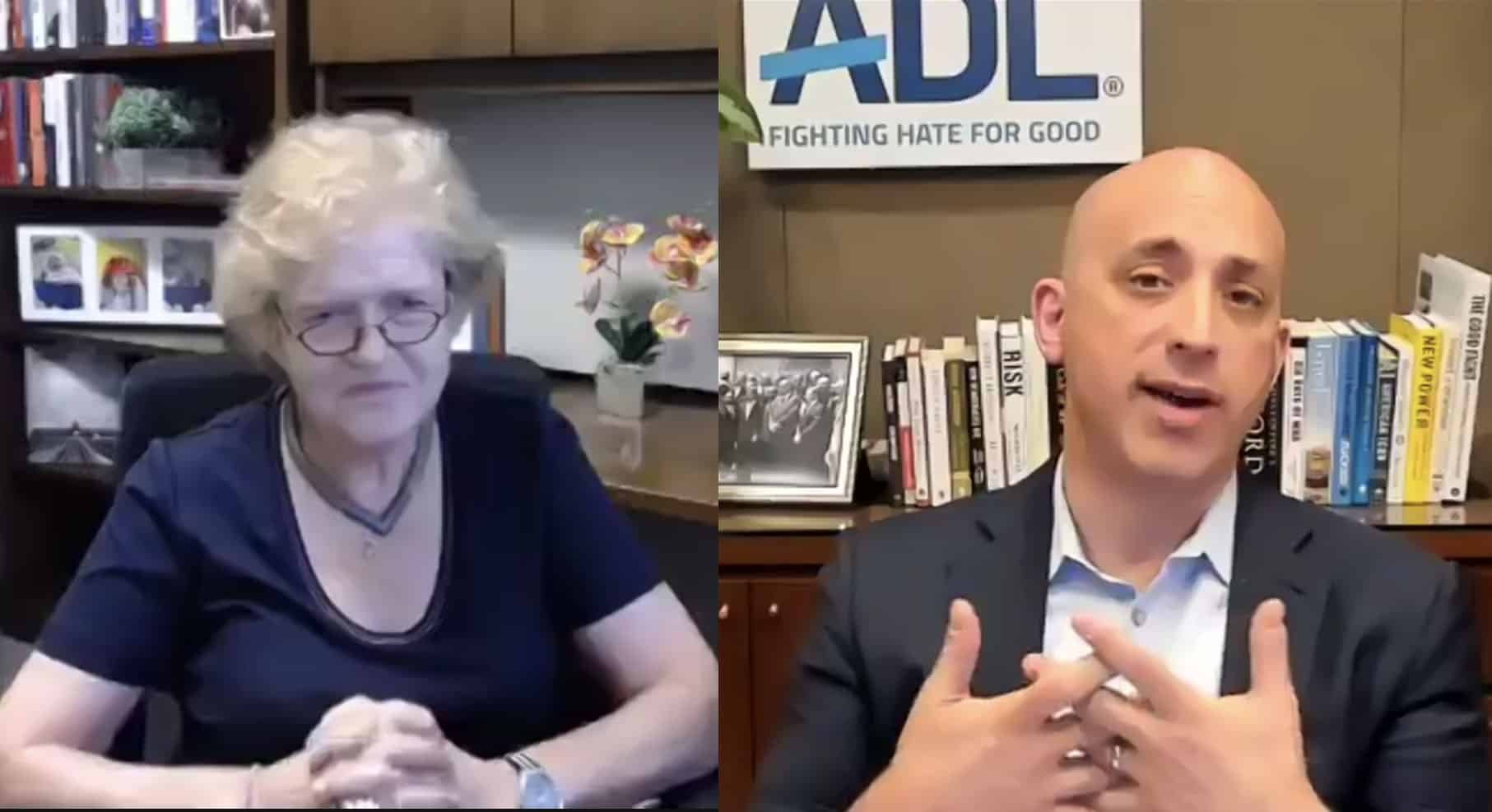 Screenshots
Screenshots Special Envoy to Monitor and Combat Antisemitism Deborah Lipstadt discussed her first couple of months on the job during a July 27 webinar hosted by the Anti-Defamation League (ADL).
Lipstadt told ADL CEO Jonathan Greenblatt that she came into the job during a “unique moment” in world history and that her job is to “put out fires” and then “make sure those embers don’t explode” when the fire is put out. Her first week on the job coincided with the German airline Lufthansa preventing more than 100 Jewish passengers from boarding their connecting flight to Budapest after one of the passengers didn’t comply with the airline’s mask mandate. Lipstadt said her office was “very disturbed” by the incident and pointed to the “terrible irony” of Lufthansa being a German airline. She did acknowledge that the airline is “taking it very seriously” and has adopted the International Holocaust Remembrance Alliance (IHRA) definition of antisemitism as an educational tool.
But it was in her meeting with the head of the airline that Lipstadt realized that she was “speaking on behalf of the United States government,” which she said added a “different gravitas” to it.
Lipstadt also discussed her recent travels to the Middle East, specifically her meetings with government officials in Saudi Arabia. The ministers she met in Riyadh and Jedda showed a “willingness to separate antisemitism” from the Israeli-Palestinian conflict; Lipstadt said she also heard similar sentiments from editors at major newspapers, publishers and NGOs in the country. “No one is saying everything is terrific in the kingdom of Saudi Arabia … but is there a change? Yes there’s a change.” She also lauded the Abraham Accords––which she said the Biden administration has fully embraced––and that the administration has a chance “to do something positive.”
When Greenblatt asked Lipstadt about the Iran nuclear deal and the Iranian government’s promulgation of antisemitism, the special envoy demurred on commenting about the deal itself, as she said it wasn’t in her purview. But Lipstadt did say that the Iranian government’s dissemination of antisemitism is something that the administration has “taken very seriously.”
On the issue of white nationalism, Lipstadt said that the focus of her office, by law, is on combating antisemitism abroad, but argued that it’s becoming tougher to distinguish between domestic and foreign issues. She pointed to the terrorist behind the hostage crisis in Colleyville, TX as an example, as he was a British national but once he entered the United States, his actions became “domestic terrorism.” Lipstadt said she is pushing for greater “interagency coordination” to handle such matters.
Regarding anti-Zionism, Lipstadt acknowledged that “criticism of Israeli policy is not antisemitism”; however, the issue is when people “question the legitimacy of the state of Israel,” especially since “Israel is home to the greatest number of Jews in the world.” “When someone has a singular focus only on Israel or only on the wrongs done by Israel … then you have to ask, what is this about and why?” Lipstadt said.
Lipstadt and Greenblatt also discussed the movements in Europe to ban kosher slaughter and circumcision. Lipstadt pointed out that those calling for the ban of kosher slaughter aren’t also calling to ban hunting and cooking lobster, which she said involves putting a live lobster into a pot. Regardless of the motivation to ban kosher slaughter and circumcision, Lipstadt said that doing so would make “it impossible for Jews to live as Jews.”
The webinar concluded with Lipstadt calling for instances of antisemitism to be condemned solely as antisemitism rather than as antisemitism and “all other forms of hatred,” arguing that doing so was tantamount to saying “All Lives Matter” in response to the Black Lives Matter movement. Lipstadt also called it a “privilege” to visit Yad Vashem with President Joe Biden and that it was “touching” to see the president get down one knee to speak with Holocaust survivors so they wouldn’t have to get up from their seats.























 More news and opinions than at a Shabbat dinner, right in your inbox.
More news and opinions than at a Shabbat dinner, right in your inbox.